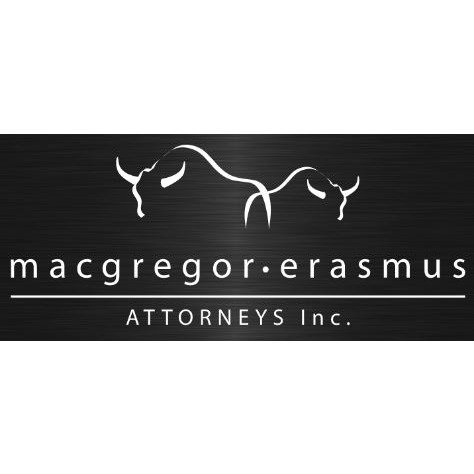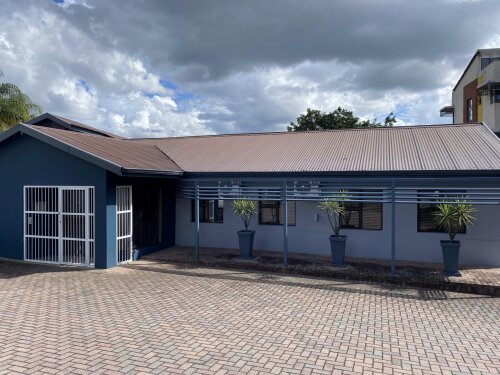Best Restructuring & Insolvency Lawyers in Johannesburg
Share your needs with us, get contacted by law firms.
Free. Takes 2 min.
List of the best lawyers in Johannesburg, South Africa
South Africa Restructuring & Insolvency Legal Articles
Browse our 2 legal articles about Restructuring & Insolvency in South Africa written by expert lawyers.
- Cross-Border Insolvency: Protecting Assets in South Africa
- Legal Framework: South Africa governs cross-border insolvency through the Cross-Border Insolvency Act 42 of 2000, which incorporates the UNCITRAL Model Law. Mandatory Recognition: Foreign liquidators or "representatives" have no standing to deal with South African assets until they obtain a formal recognition order from a South African High Court. COMI... Read more →
- Business Rescue Proceedings in South Africa for Directors
- Business rescue is a formal rehabilitation process designed to save "financially distressed" companies from liquidation. A general moratorium is triggered immediately, providing legal protection against creditor claims and asset seizures. The Business Rescue Practitioner (BRP) takes full management control of the company, effectively displacing the board's autonomous authority. Directors face... Read more →
About Restructuring & Insolvency Law in Johannesburg, South Africa
Restructuring & Insolvency law in Johannesburg, South Africa, is focused on assisting individuals and companies facing financial distress. Johannesburg, as South Africa's economic powerhouse, is home to many businesses that sometimes encounter complex financial difficulties. Restructuring typically refers to the processes and legal procedures undertaken to reorganize a company’s business, debts, or ownership to restore profitability and avoid insolvency. Insolvency refers to the state where an individual or business is unable to pay its debts as they fall due, leading to legal proceedings for asset distribution among creditors. South African insolvency law is designed to balance the interests of debtors, creditors, and other stakeholders, promoting fair and effective outcomes during financial crises.
Why You May Need a Lawyer
Legal representation is highly beneficial in restructuring and insolvency matters. Here are some common scenarios where legal help is essential:
- Advising on available options if you or your business is facing financial distress
- Negotiating with creditors for debt restructuring or compromise agreements
- Initiating or defending insolvency proceedings, such as sequestration (personal) or liquidation (corporate)
- Drafting legally compliant business rescue plans to restructure operations and finances
- Protecting directors or personal assets from potential liabilities
- Ensuring lawful conduct to avoid criminal or civil penalties during insolvency
- Recovering debts as a creditor from an insolvent debtor
- Advising on the sale or transfer of assets in insolvency proceedings
Local Laws Overview
Restructuring & Insolvency law in Johannesburg is governed primarily by national legislation, with local application by the Gauteng High Court, Johannesburg. Key pieces of legislation include:
- The Companies Act 71 of 2008, which introduced business rescue proceedings as a modern form of restructuring for companies facing financial distress
- The Insolvency Act 24 of 1936, which remains central to individual and partnership insolvency (sequestration) and the general winding-up of companies
- The Close Corporations Act 69 of 1984, governing the liquidation of close corporations
South African law provides different processes, such as voluntary and compulsory liquidation for companies, and voluntary and compulsory sequestration for individuals. Business rescue, introduced in 2011, is favored for companies as it aims to provide a better outcome for creditors than immediate liquidation. Creditors, employees, shareholders, and members all have specific rights and obligations during these processes, and local courts oversee and approve most substantial decisions in restructuring and insolvency cases.
Frequently Asked Questions
What is the difference between business rescue and liquidation?
Business rescue is a legal process that allows a financially distressed company to restructure its affairs, debts, and assets to continue trading and improve its financial position. Liquidation, in contrast, involves the closing of the company, selling its assets, and distributing the proceeds to creditors before the entity is dissolved.
Can individuals declare insolvency in Johannesburg?
Yes, individuals who are unable to pay their debts may apply to court for sequestration under the Insolvency Act. This legal process enables the orderly distribution of assets to creditors and may provide debt relief to the debtor.
Who can apply to liquidate a company?
A company can be liquidated voluntarily by its directors or shareholders, or compulsorily by creditors, shareholders, or other interested parties through a court application if the company is unable to pay its debts.
What is the role of a business rescue practitioner?
A business rescue practitioner is a specialist appointed by the court to take full management control of a distressed company during business rescue proceedings. The practitioner is responsible for developing and executing a business rescue plan in the best interests of creditors and stakeholders.
Do employees have any special rights in insolvency?
Yes, the law grants certain protections to employees, such as preferential payment of unpaid salaries and benefits out of the insolvent estate, and the right to be consulted during business rescue or liquidation processes.
How does insolvency affect personal assets?
Once a sequestration order is granted, a trustee is appointed to take control of the debtor’s estate and distribute assets among creditors. Most assets of value are sold, but certain protected items may be excluded under the law.
Can creditors recover their full debt in insolvency?
Not always. Creditors typically recover only a portion of their debt, depending on the proceeds of asset sales and the ranking of their claims. Secured creditors are paid first, followed by preferent creditors like employees, then ordinary (concurrent) creditors.
What are my options if I receive a liquidation or sequestration notice?
Seek legal advice immediately to assess the validity of the claim and explore options such as settlement, restructuring, contesting the proceedings, or proposing a compromise to creditors.
How long do insolvency or liquidation proceedings usually take in Johannesburg?
The duration varies greatly based on the complexity of the estate or company. Simple matters may conclude in a few months, while complex estates can take several years to finalize.
What penalties can directors face in an insolvent company?
Directors may face personal liability or criminal prosecution if they are found to have acted recklessly, fraudulently, or dishonestly in managing the company’s affairs, especially towards the point of insolvency.
Additional Resources
Several resources and organizations can provide useful guidance or support in restructuring and insolvency matters:
- Department of Justice and Constitutional Development - information on insolvency courts and procedures
- Companies and Intellectual Property Commission (CIPC) - for company filings and business rescue proceedings
- South African Restructuring and Insolvency Practitioners Association (SARIPA) - directory of accredited practitioners
- Legal Aid South Africa - for individuals who qualify for free legal assistance
- The Law Society of South Africa and local Johannesburg Bar associations - to find qualified legal professionals
Next Steps
If you are facing financial challenges or are involved in a restructuring or insolvency situation in Johannesburg, start by gathering all relevant documents (such as financial statements, debt notices, contracts, and correspondence). Document all communications with creditors or other involved parties. Consult a legal professional who specializes in restructuring and insolvency as soon as possible, as early advice can preserve your rights and improve your options. Consider contacting regulatory bodies or professional associations for referrals if you are unsure where to find expert assistance. Remain proactive by understanding your obligations, potential risks, and the remedies available in law.
Lawzana helps you find the best lawyers and law firms in Johannesburg through a curated and pre-screened list of qualified legal professionals. Our platform offers rankings and detailed profiles of attorneys and law firms, allowing you to compare based on practice areas, including Restructuring & Insolvency, experience, and client feedback.
Each profile includes a description of the firm's areas of practice, client reviews, team members and partners, year of establishment, spoken languages, office locations, contact information, social media presence, and any published articles or resources. Most firms on our platform speak English and are experienced in both local and international legal matters.
Get a quote from top-rated law firms in Johannesburg, South Africa — quickly, securely, and without unnecessary hassle.
Disclaimer:
The information provided on this page is for general informational purposes only and does not constitute legal advice. While we strive to ensure the accuracy and relevance of the content, legal information may change over time, and interpretations of the law can vary. You should always consult with a qualified legal professional for advice specific to your situation.
We disclaim all liability for actions taken or not taken based on the content of this page. If you believe any information is incorrect or outdated, please contact us, and we will review and update it where appropriate.
















